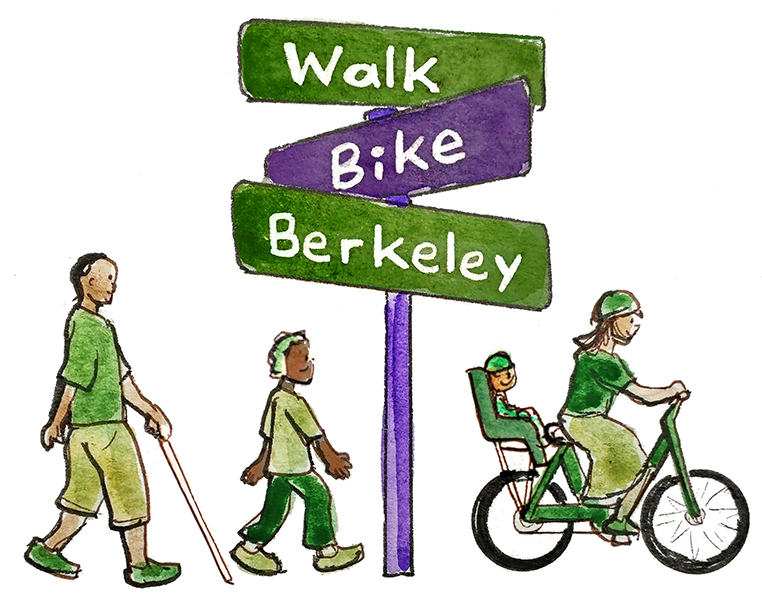Council recommends de-policing traffic enforcement & creating a BerkDOT!
In a major win for mobility justice, Berkeley City Council voted at its July 14 meeting to start the process of addressing systemic racism in the public right-of-way:
Transfer police traffic enforcement (and other duties) to unarmed civilians.
Create an equity-focused Berkeley Department of Transportation (BerkDOT).
Prohibit police from conducting discretionary pretext stops based on minor traffic violations.
The next step will be a community engagement process to transform public safety in Berkeley through these and other strategies. These changes will take time and sustained advocacy - we will continue to call on Walk Bike Berkeley’s membership for support.
Walk Bike Berkeley, East Bay for Everyone, and Transportation and Police Review Commissioners led this advocacy effort. We were joined by a broader coalition of social justice and transportation groups:
East Bay Community Law Center
Ella Baker Center for Human Rights
TransForm
Bike East Bay
The Lawyers’ Committee for Civil Rights of the San Francisco Bay Area also submitted a letter in support. And City Council was also flooded with supportive emails from Berkeley residents, so thanks everyone who wrote in.
Our work to make Berkeley the first U.S. city to de-police transportation has reverberated across the nation. A few of our favorite news stories: Fast Company, Forbes, The Guardian, New York Times.
Our vision for BerkDOT
As we move forward, let’s continue pushing the City to center equity in creating BerkDOT: prioritizing engineering and community engagement over enforcement, consistent with our Vision Zero goals. Doing so will help ensure BerkDOT brings Berkeley closer to its goals of being a safe, just, vibrant, and sustainable city.
We want BerkDOT to combine the Public Works Department’s above-ground street and sidewalk planning, maintenance, and engineering responsibilities with the following police traffic functions:
Parking and traffic enforcement
School crossing guard management
Collision response, investigation, and reporting
BerkDOT should also have clear guidelines for calling on BPD for support in the rare instances it’s needed.

